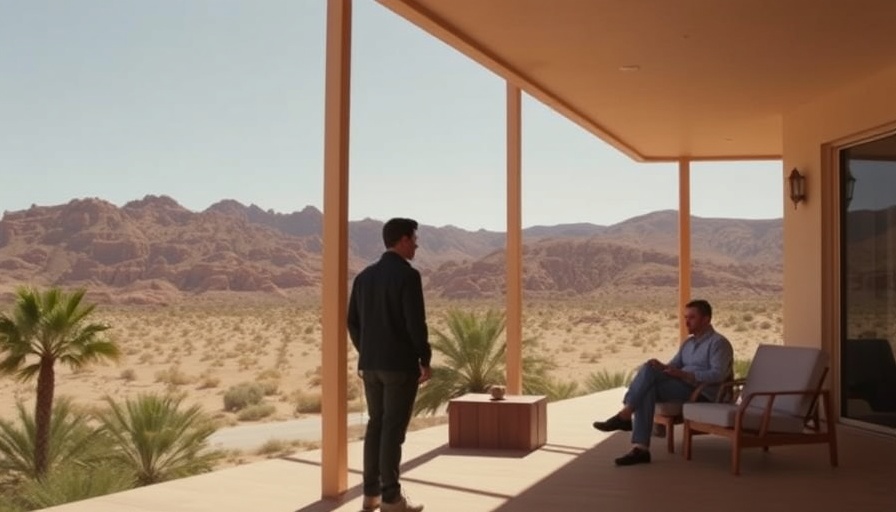
The Allure of Wes Anderson’s New Film: A Cultural Journey
The highly anticipated trailer for The Phoenician Scheme by Wes Anderson has taken the film world by storm, showcasing a vibrant tapestry of characters and a storyline steeped in intrigue. Digital nomads, those who value experiences over possessions and often travel in search of cultural enrichment, will find much to appreciate in this film that not only entertains but also offers a glimpse into diverse narratives and values.
Understanding the Ensemble: Characters and Themes
As we delve into the film’s premise, we encounter Zsa-zsa Korda, played by Benicio del Toro, a millionaire with an adventurous spirit who has survived several plane crashes. His riveting backstory—fathering nine sons and one daughter—opens discussions about familial bonds and legacy, themes that resonate deeply with those who travel and form relationships across borders.
Moreover, the film features a captivating cast, including Scarlett Johansson, Tom Hanks, and Richard Ayoade, each adding unique flair to their roles. Their inclusion is not merely star power; it signals a blend of comedic brilliance and deep character exploration, essential for a narrative that aims to shed light on international dynamics.
Wes Anderson’s Vision: A Reflection of Our Times
In a world increasingly divided, Anderson's films often serve as a unifying lens, blending aesthetics with societal commentary. The Phoenician Scheme encapsulates the essence of cultural intersections, reflecting how globalization has eroded and yet enriched traditional narratives. There’s a fundamental truth that resonates with digital nomads; each journey, whether literal or filmic, is a collective attempt to find common humanity.
Espionage and Comedy: A Unique Genre Blend
Wes Anderson is known for his whimsical storytelling style, and with this film, he ventures into the realm of espionage. This genre, often characterized by tension and thrills, is balanced with comedy, making it universally accessible and enjoyable. As Anderson deftly juggles suspense with humor, audiences familiar with cultural narratives can appreciate the complexities underlying various nations’ histories, allowing them to forge emotional connections with the characters.
A Showcase of Diverse Perspectives
Alongside Zsa-zsa Korda's exploits, the inclusion of diverse roles such as that of a freedom fighter played by Richard Ayoade introduces viewers to global issues, emphasizing themes of justice and self-determination. This aspect of the film ignites curiosity among viewers, inviting them to look beyond cinema and engage with real-world histories that shape our collective existence.
The Parallels to Digital Nomad Culture
For digital nomads, the themes presented in The Phoenician Scheme are not merely superficial entertainment; they reflect the essence of their lifestyle—curiosity, adaptability, and a hunger for cultural immersion. This film provides a narrative framework that parallels their travels, offering insights into how different societies navigate their struggles, successes, and relationships.
Anticipation Building: Cannes Premiere
Scheduled for release in late May and expected to premiere at the Cannes Film Festival, the buzz surrounding The Phoenician Scheme has reached a crescendo. Such events heighten the cultural experience that surrounds films, making it pivotal for those with a passion for travel and cultural exploration. Attending festivals provides an immersive experience where film lovers can discover deeper meanings and engage with creators and audiences alike.
As the launch date approaches, the film’s potential to enhance cultural understanding cannot be overstated. Digital nomads interested in absorbing the essence of various cultures will find that this film not only entertains but also serves as an educational journey through the lens of storytelling.
Call to Action: Don’t miss out on the chance to experience The Phoenician Scheme and its rich storytelling. Join discussions about cultural narratives in cinema, explore related films, and discover the world beyond the screen. This could be an opportunity for deeper engagement with both film and travel communities!
 Add Row
Add Row  Add
Add 




Write A Comment